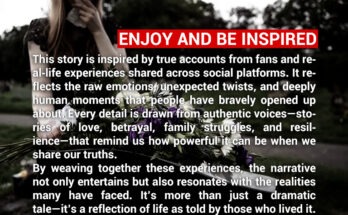I’m Mabel, 81 years old, and I gave my entire savings—$25,000 earned from years of cleaning floors—for my granddaughter Clara’s wedding. I wanted to see her walk down the aisle, to witness one last joyful moment before dementia took more of me. But three weeks before the ceremony, I overheard Clara say I wasn’t invited. She feared I’d embarrass her in front of her fiancé’s family. I was devastated. The little girl I’d raised with love now saw me as a burden. My heart broke, but I didn’t disappear quietly.
They moved me to a nursing home days before the wedding. I sat in my small room, replaying memories of Clara’s childhood—her laughter, her tiny hands helping me bake. I felt discarded, erased. But on the morning of her wedding, I woke with clarity. I called my son and asked for the venue address. I promised not to make a scene. I just wanted to see her in her dress. He hesitated, but gave it to me. I dressed carefully, wearing pearls Harold gave me on our anniversary, and left with quiet resolve.
At the venue, I heard shouting. Clara’s fiancé, Josh, had just discovered she’d excluded me. “You didn’t invite your grandmother because you were embarrassed?” he said. “No wedding. I’m leaving.” Clara was stunned. I stepped inside, and she froze. “I just wanted to see you in your gown,” I said. She demanded I leave. But I didn’t. I called the nursing home and invited the residents to join me. If Clara didn’t want a wedding, we’d have a celebration anyway.
Within an hour, buses arrived. Elderly guests filled the hall with laughter, music, and joy. Someone danced with me. Someone else spun in a wheelchair. Clara and her mother stood frozen, watching their perfect day transform. I raised a glass and toasted, “To living! To being seen!” The room erupted in cheers. Josh approached me and said, “I’m glad you came. She needed to learn this lesson.” Clara cried—not from joy, but from shame. And I didn’t comfort her. Not yet.
Later, Clara apologized. “I was cruel,” she said. “I just wanted everything to be perfect.” I replied, “Perfection isn’t about appearances. It’s about love—even when it’s hard.” She asked for forgiveness. I gave it, but told her she needed to do better. My son hugged me, finally seeing the woman who’d raised him. That night, back at Willowbrook, I whispered to Harold, “We did it. We showed them we still matter.” Because sometimes, justice doesn’t wait for heaven. Sometimes, you deliver it yourself.


